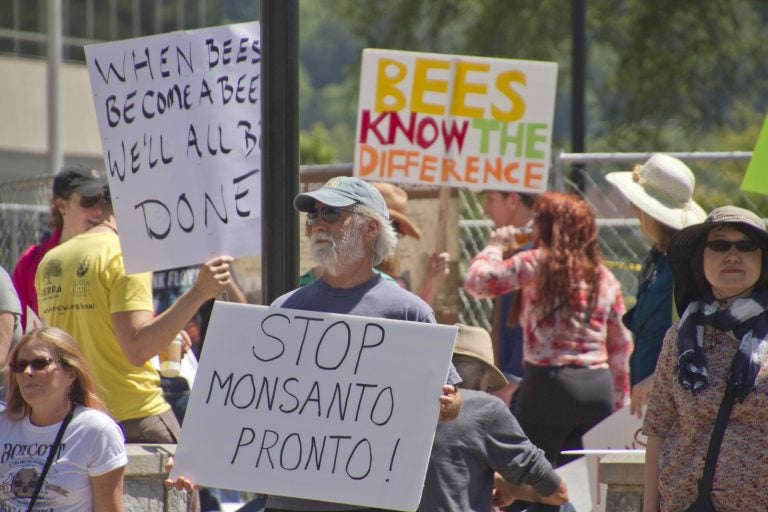Why opposition to GMOs is a First World privilege
How public mistrust in GMOs destroyed one scientist's dream of helping farmers in developing countries produce sturdier, higher-yield crops.
Listen 06:49
A former GMO researcher explains how class plays into flawed perceptions of genetically engineered crops. (Image courtesy of Bigstock)
Growing up in India, Devang Mehta thought of GMOs, or genetically modified organisms, as an exciting new technology.
“India is really an agricultural country,” he said. “Growing up, we didn’t have supermarkets. People would come directly to the house to sell vegetables. So you have this kind of very direct link to agriculture.”
There was an obvious utility to GMOs — sturdier, higher-yield crops for the 58 percent of India’s population that relies on farming to live.
But GMO research is limited in India. So when Mehta decided to get his Ph.D. in genetic engineering, he headed to the Swiss Federal Institute of Technology in Zurich, home of the world’s most famous GMO to date: “golden rice,” engineered to accumulate vitamin A, which can help fight childhood malnutrition.
Mehta had heard that GMOs were controversial in Europe and the U.S. But it wasn’t until he arrived in Zurich that he discovered just how controversial they were.
“If the topic of my research came up, it would just be met by this really awkward silence,” Mehta remembered. “Especially among my generation in Europe, the label of GMO has been completely demonized.”
That’s in part because GMOs are banned in Europe, and widely viewed as unsafe for human consumption.
As a student, Mehta saw some of this opposition erupt into outright protest. He remembers a panel talk his program held that was interrupted by an audience member.
“She was talking about a friend of hers in the U.S. who had a child with autism,” Mehta said, “and she seemed to believe that the autism was caused due to the genetically modified corn that is grown in the U.S.”
He said this, and other objections he heard, point to a shared belief among those suspicious of GMOs: that scientists who work on them are on the payroll of industry giants like Monsanto, who they believe are willing to poison the public for a profit.
Though Mehta said that doesn’t jibe with his experience as a researcher, he understands why some people are suspicious of science.
“I think there’s some legitimate reasons for why people have distrust of science,” he said. “A lot of this goes back to kind of the way scientists defended Big Tobacco in the 60s, or the use of science in warfare.”
As a Ph.D. student, Mehta did his best to change people’s perceptions of GMOs and the scientists working on them, in part by discussing his own work, which involved developing a disease-resistant form of cassava — a root vegetable that feeds nearly a billion people in Africa and Asia.
“It’s not a First World crop,” Mehta said. “It’s grown in very marginal conditions.”
That didn’t stop the mostly Swiss students he was debating from asking a question Mehta heard again and again: Why couldn’t these farmers just use safer insecticides or organic farming?
“Students didn’t seem to realize that these are not options in countries like Kenya or India,” Mehta said. “The reason why we work on GMOs is because they are the most effective way to give the farmer a product that he can depend on, and not have them rely on … chemicals or things that lead to worse outcomes.”
In other words, a lot of farmers in developing countries don’t have the luxury of safe insecticides or organic farming methods. The alternative — aside from GMOs — is unsafe insecticides, which can be dangerous to both people and the environment.
The disconnect went beyond public suspicion of science. According to Mehta, a lot of it had to do with class.
“Switzerland is one of the richest countries by per capita income in the world,” he said. “So it was really hard to communicate to people over there that the technologies that we’re working on are not optional.”
Mehta eventually left the field of GMO research, but he continues to defend GMOs’ potential to do good, including helping farmers in developing nations and feeding the world’s growing population.
Read Devang Mehta’s essay, “Why I’m quitting GMO research.”
—
Correction: This story previously misstated the name of the university in Zurich where Devang Mehta studied genetic engineering.
WHYY is your source for fact-based, in-depth journalism and information. As a nonprofit organization, we rely on financial support from readers like you. Please give today.







